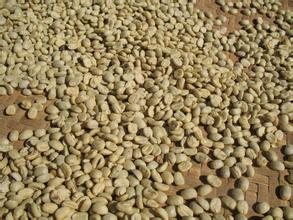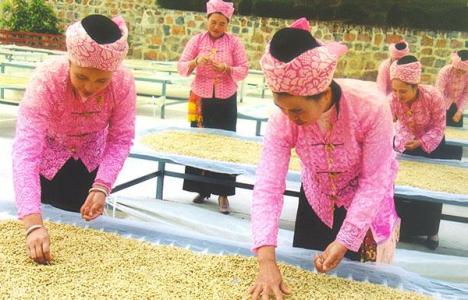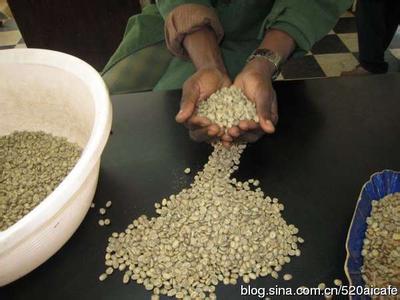Introduction to the description of planting environment and flavor of high-quality coffee beans in Antigua, Guatemala
Introduction to the description of planting environment and flavor of high-quality coffee beans in Antigua, Guatemala
Of the three major non-volcanic coffee producing areas in Guatemala, the Mini Tenango Highlands has the driest climate and the highest elevation. The dry and hot wind from Mexico's Tehuantepec plateau protects the region's coffee from frost and can be grown to 2000 meters (6500 feet). Because of its remote location, all coffee farmers have to process their own coffee, but fortunately there are so many streams in the area that small processing plants can be set up almost anywhere.
The characteristics of micro Nanguo Highland Coffee Cup (Highland Huehue? Cup profile) Highland Huehue? Cup profile has high acidity, pleasant acidity, high alcohol thickness and wine aftertaste.
Palate: rich aroma, grape tropical fruit acidity, full and mellow
Ta's unique charm interprets the sweetness of Guatemala. Ta will make you think that all the coffee beans will make do, ta, and will make you crazy about ta and ta, which is unique to Antigua.
If a person's wrinkles depict a person's path, then the smell of coffee remembers the origin of a cup of coffee: about its hometown, the time of harvest, the way it is roasted and ground, that is, the lifetime journey of coffee. Guatemala's fertile volcanic soil gives birth to a unique flavor of boutique coffee beans: Antigua coffee. The charm of Antigua lies in its well-balanced and refreshing acidity, rich spice and unique smoky taste.
Traditional Traditional Atitl á n is one of the five major volcanic coffee producing areas in Guatemala, and its soil organic matter is the most abundant among the five volcanic coffee producing areas. 90% of the traditional Atilan coffee is grown on the violent volcanic slopes of Lake Attila, where the daily breeze stirs the lake, which is an important factor affecting the microclimate of the region. The area has accumulated excellent planting and processing techniques for a long time.

Important Notice :
前街咖啡 FrontStreet Coffee has moved to new addredd:
FrontStreet Coffee Address: 315,Donghua East Road,GuangZhou
Tel:020 38364473
- Prev

Description of the basic flavor of Rosa coffee-which estates are produced at the place of origin and price
Description of the basic flavor of Rosa Coffee-which estates have been produced until 2004, Rosa Coffee has been in a state of obscurity, and the magical flavor of ta has not been discovered. In the experimental planting stage, the quality of the coffee was average, but now it is speculated that the low altitude and low harvest failed to win the favor of the researchers. later,
- Next

Sidamo Coffee Flavor description, Taste characteristics, treatment method, Grinding scale
Sidamo Coffee Flavor description Taste treatment method Grinding scale is produced by the Sherisa Cooperative near Dilla town. The cooperative was founded in 1976 and is now a member of the SCFCU of the Sidamo Farmers' Cooperative Union. We have screened the coffee again, and the selected batch has excellent flavor, which tends to honey, citrus and coffee flowers.
Related
- Detailed explanation of Jadeite planting Land in Panamanian Jadeite Manor introduction to the grading system of Jadeite competitive bidding, Red bid, Green bid and Rose Summer
- Story of Coffee planting in Brenka region of Costa Rica Stonehenge Manor anaerobic heavy honey treatment of flavor mouth
- What's on the barrel of Blue Mountain Coffee beans?
- Can American coffee also pull flowers? How to use hot American style to pull out a good-looking pattern?
- Can you make a cold extract with coffee beans? What is the right proportion for cold-extracted coffee formula?
- Indonesian PWN Gold Mandrine Coffee Origin Features Flavor How to Chong? Mandolin coffee is American.
- A brief introduction to the flavor characteristics of Brazilian yellow bourbon coffee beans
- What is the effect of different water quality on the flavor of cold-extracted coffee? What kind of water is best for brewing coffee?
- Why do you think of Rose Summer whenever you mention Panamanian coffee?
- Introduction to the characteristics of authentic blue mountain coffee bean producing areas? What is the CIB Coffee Authority in Jamaica?

